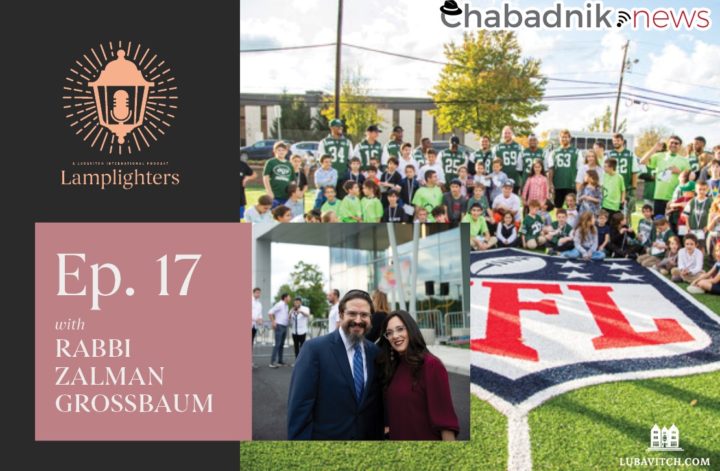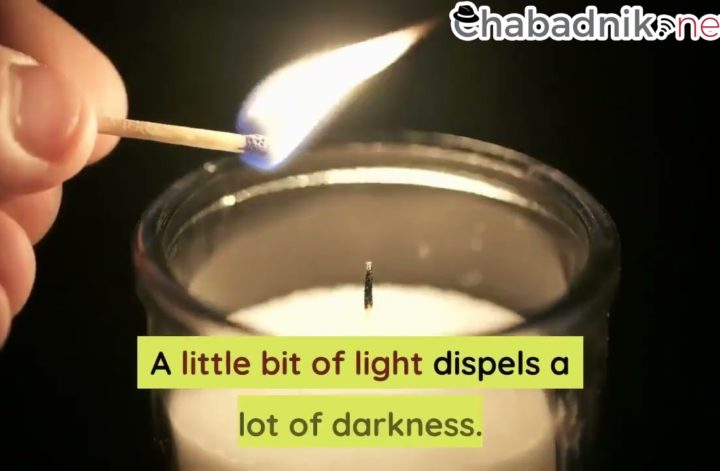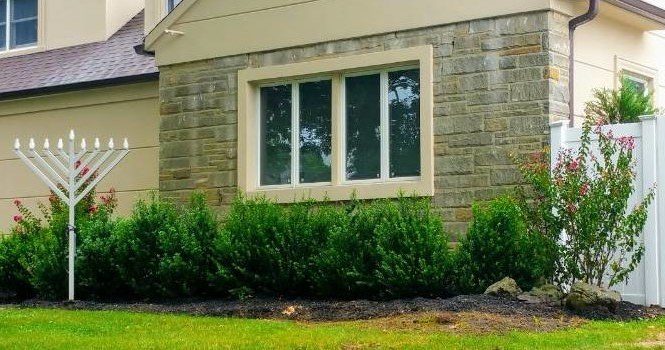Marking one year since the Oct. 7 terror attack in Israel, former President Donald Trump paid a personal prayer visit on Monday afternoon to the Ohel in Queens, N.Y., the resting place of the Rebbe—Rabbi Menachem M. Schneerson, of righteous memory.
Millions of people send their written prayers via email and post to the Ohel, while some 400,000 make pilgrimages there each year. Located at the Old Montefiore Cemetery, the Ohel is open 24/7 and has long been a place for reflection for private citizens and world leaders alike, Jews and non-Jews, each coming to the holy site to pray, seek inspiration and find solace.
Trump was welcomed by Rabbi Abba Refson, director of the visitor’s center at the Ohel, and Rabbi Motti Seligson, a spokesman for Chabad-Lubavitch. Also present were Yael, Adi and Roy Alexander, parents and brother of Edan Alexander, who is currently being held hostage by terrorists in the Gaza Strip; Jerry Wartski, a survivor of the Auschwitz death camp; two Jewish college students currently speaking out against antisemitism on campus; Rabbi Yehuda Krinsky, chairman of Merkos L’Inyonei Chinuch, the educational arm of the Chabad-Lubavitch movement; and Rabbi Levi Shemtov, director of American Friends of Lubavitch in Washington, D.C., among others.
On his way into the Ohel, Trump placed some money into the large tzedakah box near the entrance in keeping with Jewish tradition to increase charitable giving at this time of year.
The Rebbe’s Ohel is the most visited Jewish holy site in North America, drawing people from all walks of life in a way similar only to the Western Wall in Israel. It is common for people to visit the Ohel to pray in proximity to a personal or professional milestone—whether a bar or bat mitzvah, wedding, anniversary, starting a new business or overcoming personal challenges. Indeed, the former president has survived two assassination attempts over the last few months.
In many ways, Trump’s prayer visit is the continuation of a family tradition: Prior to both presidential elections, his daughter, Ivanka Trump, and son-in-law, Jared Kushner, paid late-night, media-free visits to the Ohel.
Recognized as the most influential rabbi in modern history, the Rebbe has been honored by every U.S. president since Jimmy Carter, who in 1978 began the tradition of proclaiming the Rebbe’s birthday as Education and Sharing Day, U.S.A. In 1994, the Rebbe was posthumously awarded the Congressional Gold Medal in recognition of his “extraordinary life and work.”
The Rebbe was born in 1902 in what is today Ukraine, arriving in the United States in 1941 after escaping from Nazi-occupied Europe. A decade later, following the passing of his father-in-law and predecessor the Sixth Rebbe—Rabbi Yosef Yitzchak Schneersohn, of righteous memory—he assumed leadership of the worldwide Chabad-Lubavitch movement.
Far from focusing only on the revival of the Jewish people, the Rebbe turned his gaze outward to the world at large, emphasizing a universal vision for a better world. He spoke of the goodness inherent within all of humankind and the infinite potential of every individual and each good deed. He believed in the fundamental need to nurture this good within man via a moral and ethical education, especially among children, who must be impressed upon from the youngest age that it is within their capacity to change the world for the better.
Throughout his lifetime, the Rebbe expended thousands of hours meeting and corresponding with people from all walks of life, among them rabbis, statesmen and laypeople, Jews and non-Jews, including Presidents Carter and Ronald Reagan, Shirley Chisholm and Robert F. Kennedy.
Visiting the resting place of the righteous is a long-held tradition in Judaism. The Talmud recounts how Caleb visited Hebron to pray at the Maarat Hamachpela (“Cave of the Patriarchs”), the resting place of the biblical patriarchs and matriarchs. Resting places of Jewish mystics and sages in Israel and Europe are considered sacred spaces and have been visited by Jews and non-Jews for centuries.
The timing of Trump’s visit—two days after Rosh Hashanah—is significant, as special emphasis is placed on visiting these sites on the days leading into Rosh Hashanah and Yom Kippur.



